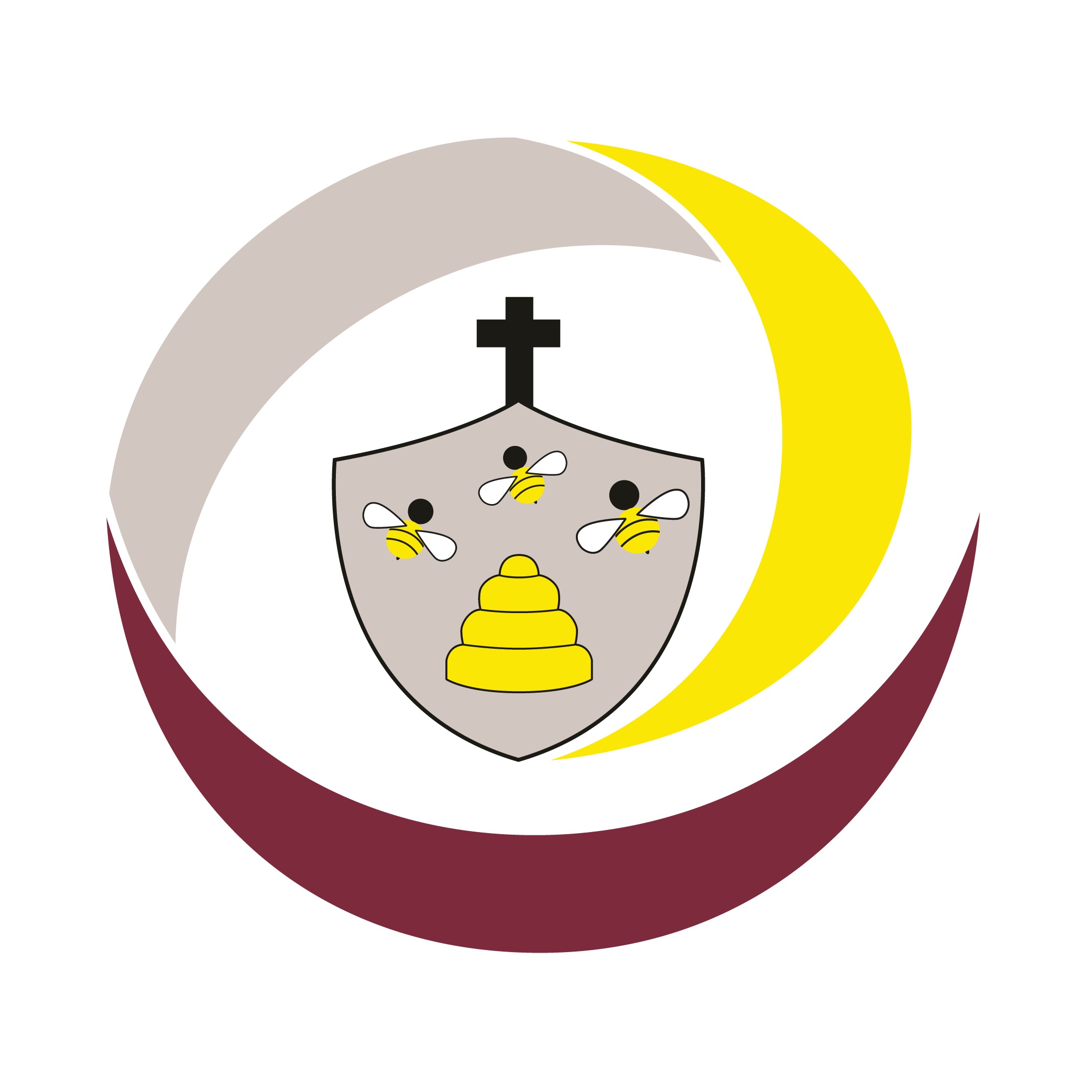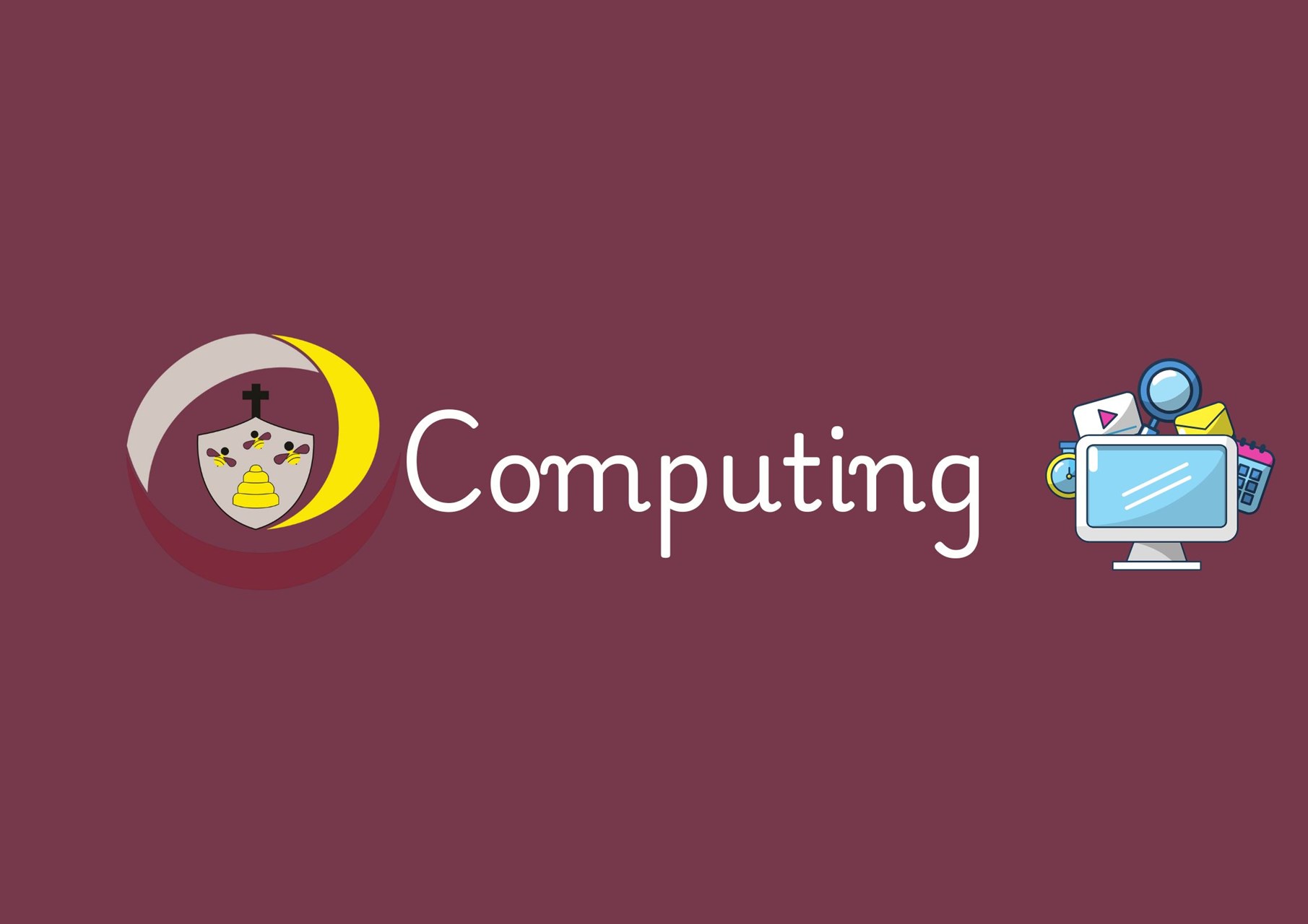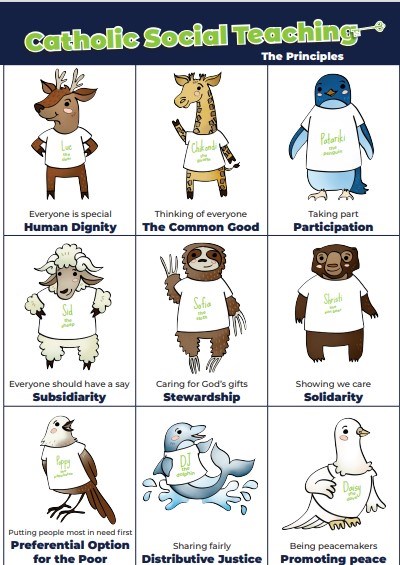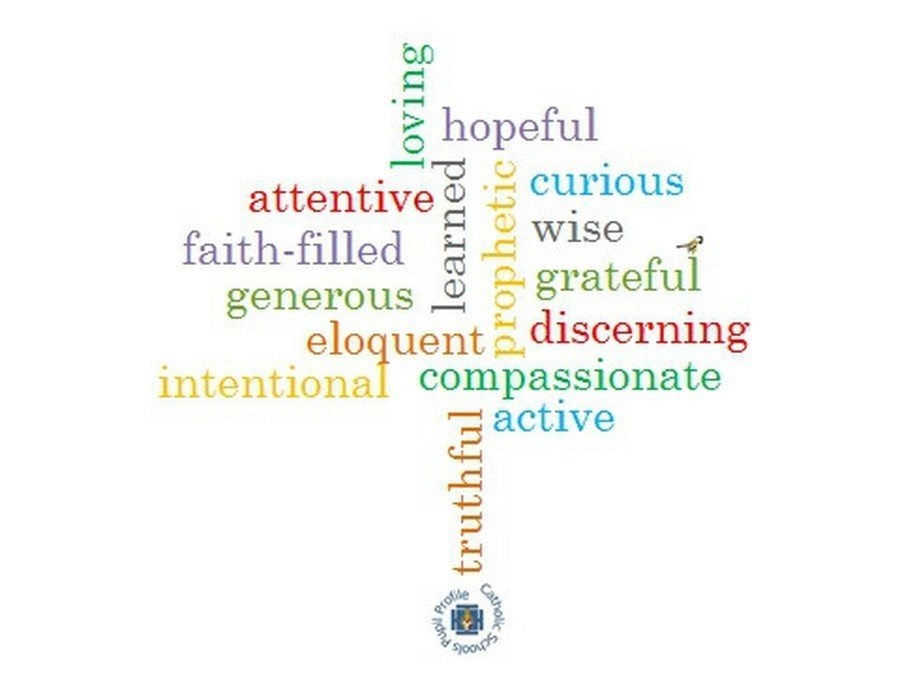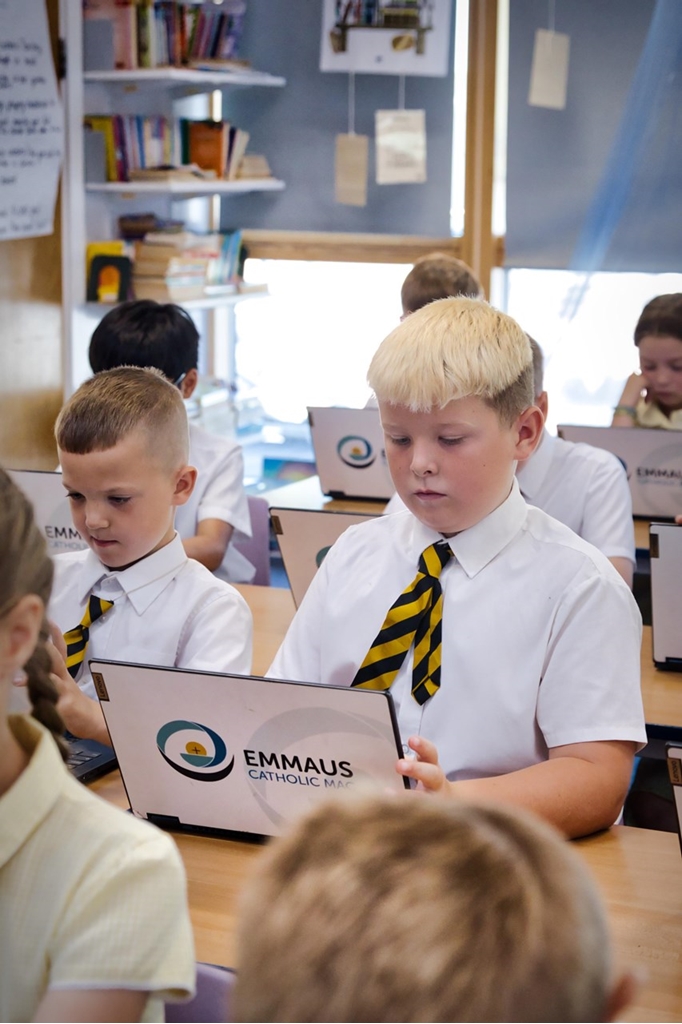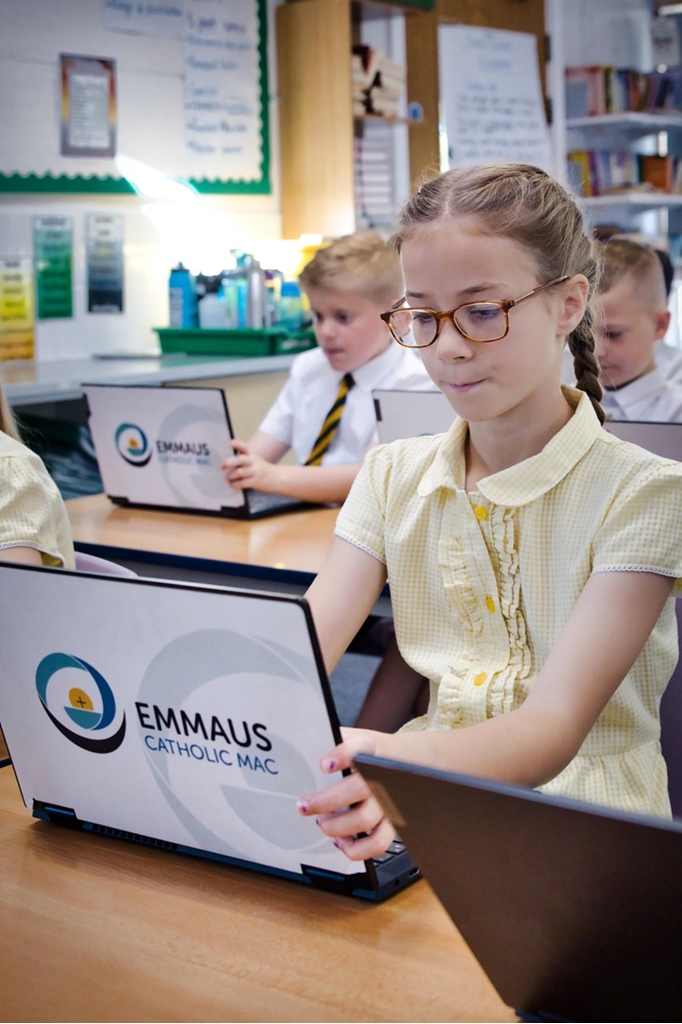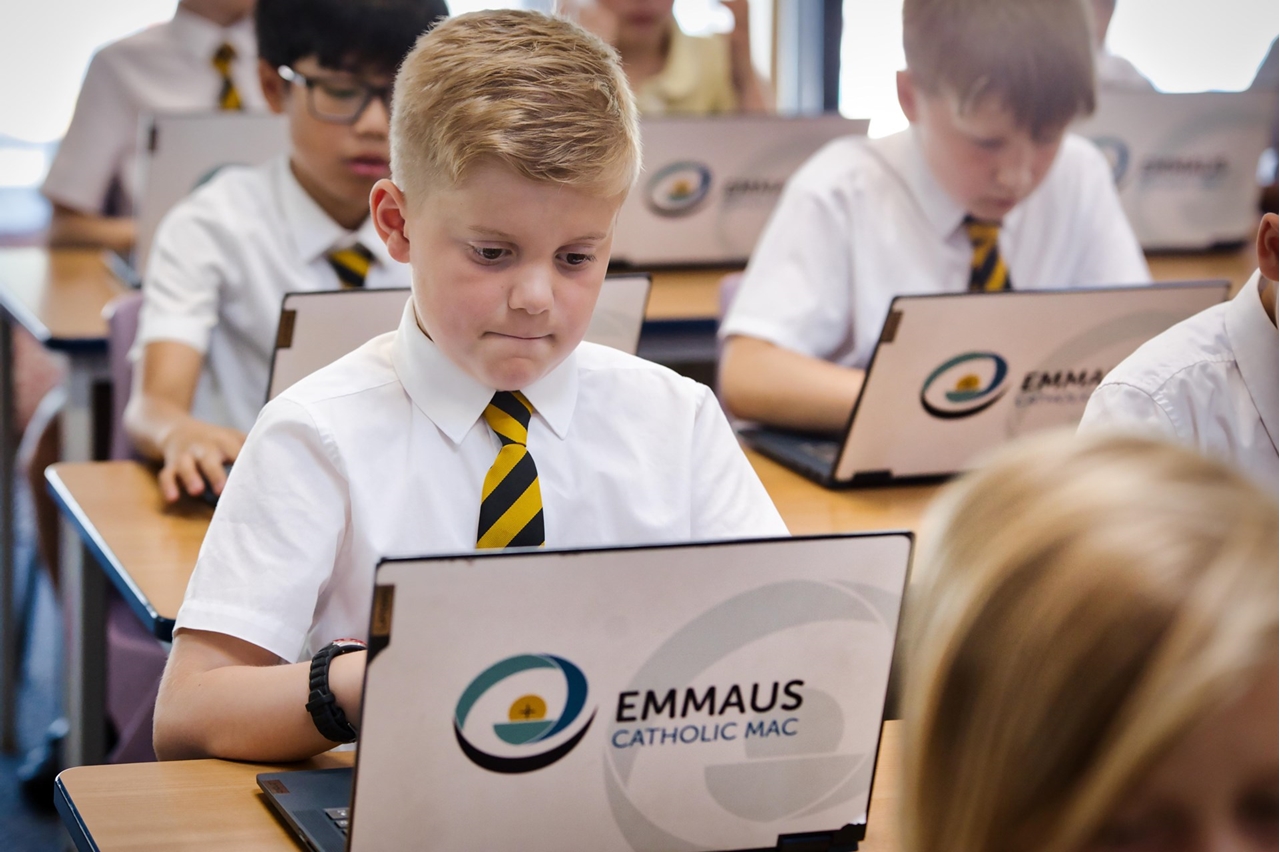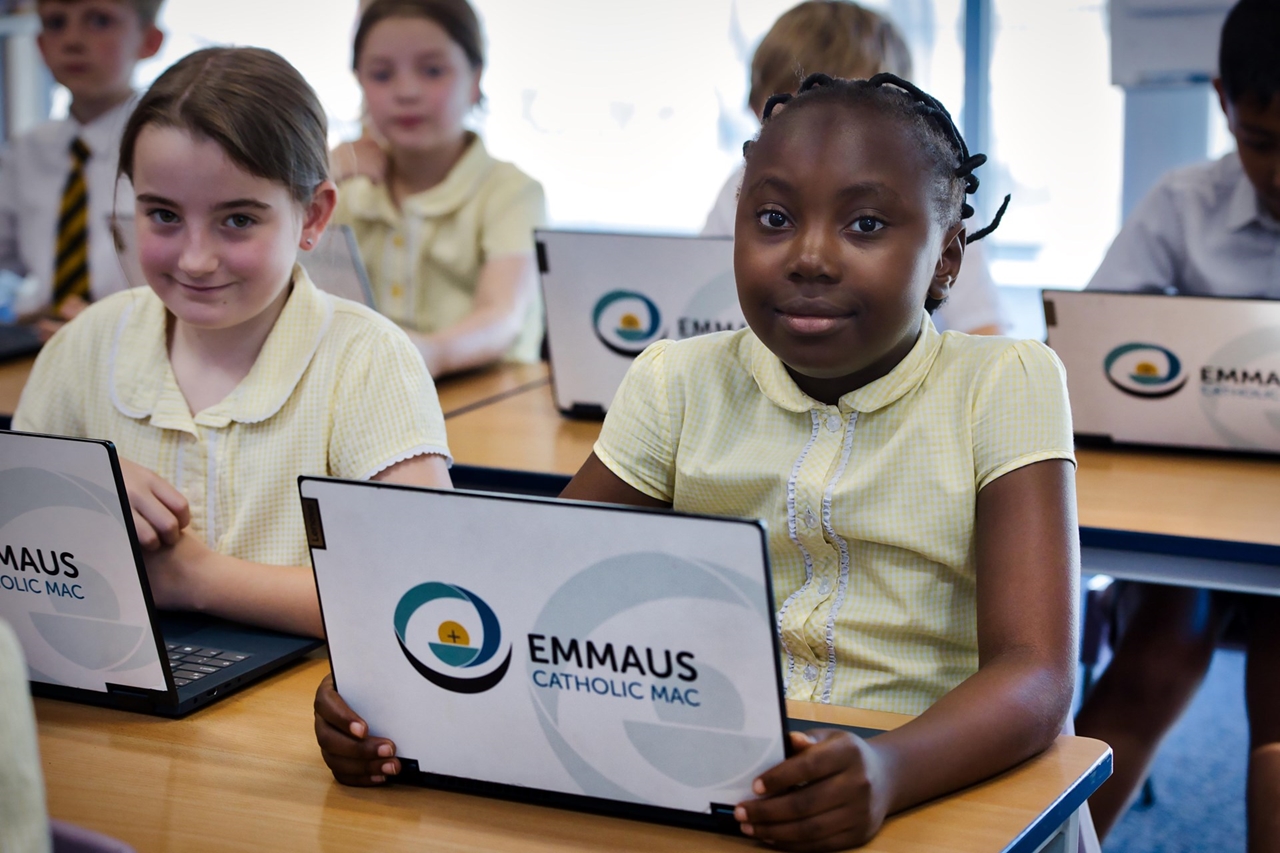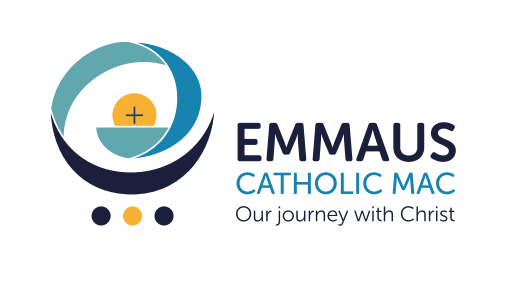Intent
At St Ambrose, our aim is for all children to become confident, responsible, and creative users of technology. We want pupils to understand how technology shapes the world around them and to develop the skills to use digital tools purposefully both at home and in school. Our curriculum ensures children gain secure and comprehensive knowledge of how digital systems work, alongside an appreciation of the implications and responsibilities that come with living in a rapidly developing technological society. Online safety is at the heart of our intent: children will learn to navigate the digital world safely, respectfully, and responsibly, reflecting our school values and British Values—showing respect, tolerance, fairness, and responsibility in all their online interactions.
Implementation
Computing is taught through a clear, progressive scheme of learning that draws on the National Curriculum, Kapow Primary, and our Emmaus Curriculum, ensuring full coverage of digital literacy, information technology, and computer science. Lessons are carefully sequenced to build on prior knowledge, ensuring progression in coding, digital creativity, online safety, and understanding how digital systems function.
Children have access to a wide range of hardware and software, including computers, tablets, and programmable devices, enabling rich, hands-on computing experiences. Pupils are taught to engage with key digital issues such as communication, cyberbullying, privacy, plagiarism, and the responsible use of social media. Online safety is not a one-off lesson but a continuous thread throughout the year, reinforced through classroom teaching, assemblies, pupil workshops, and dedicated events such as Safer Internet Day.
Opportunities for safe and meaningful use of technology are woven into wider curriculum planning, supporting learning across subjects. When online-safety concerns arise, parents are informed and supported to help keep their children safe at home. Alongside the discrete computing curriculum, pupils regularly revisit and deepen their understanding of how to stay safe, respectful, and responsible online, preparing them for the challenges of an ever-changing digital world.
Impact
Through our carefully structured computing curriculum, children at St Ambrose develop into confident, creative, and responsible users of technology. They leave school equipped with the practical skills and deep understanding needed to navigate an increasingly digital world, applying their knowledge purposefully both in learning and everyday life. Pupils demonstrate respect, tolerance, and responsibility in all online interactions, reflecting our school and British Values. They are able to use a wide range of digital tools effectively, understand how systems work, and make informed decisions about online safety, privacy, and ethical use of technology. As a result, our learners are prepared not only to thrive academically but also to contribute positively and safely to society in a rapidly evolving technological landscape.
